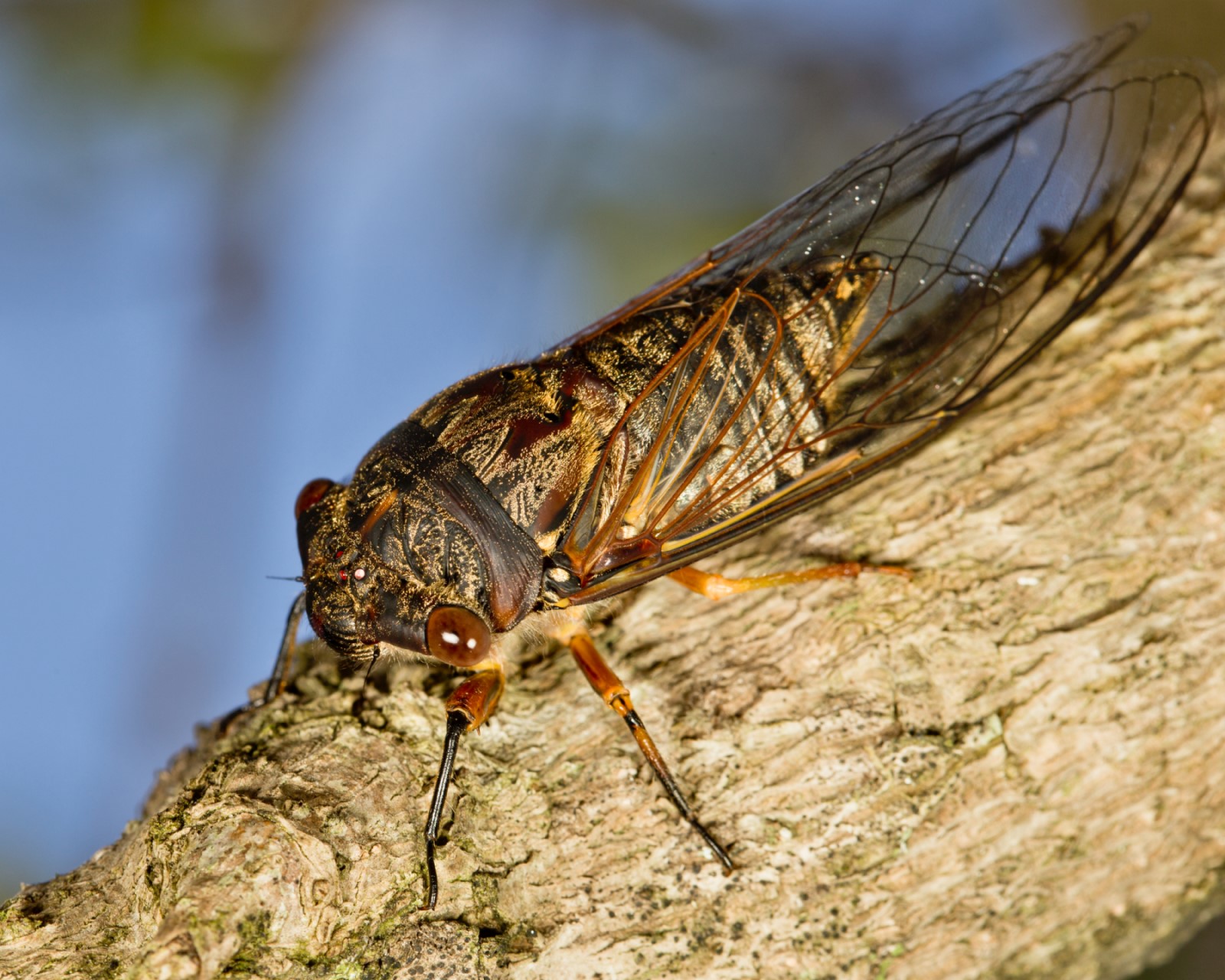They will sing, but they won’t sting!
 That humming, buzzing chorus of insects heard on summer nights is usually due to cicadas — small, stout-bodied, large-headed insects with sucking mouth parts. Cicadas are usually green with red and black markings. They are an inch or more in length and have 2 pairs of wings. Cicadas also have a 3-jointed beak, an abdomen of six segments and prominent compound eyes. While they may be rather noisy, we have nothing to fear. They do not swarm, bite, sting, or stab. Cicadas are the longest-lived insects in North America.
That humming, buzzing chorus of insects heard on summer nights is usually due to cicadas — small, stout-bodied, large-headed insects with sucking mouth parts. Cicadas are usually green with red and black markings. They are an inch or more in length and have 2 pairs of wings. Cicadas also have a 3-jointed beak, an abdomen of six segments and prominent compound eyes. While they may be rather noisy, we have nothing to fear. They do not swarm, bite, sting, or stab. Cicadas are the longest-lived insects in North America.
After 7 years of dormancy underground, the species emerges for 3 to 5 weeks of activity in the sunlight and then dies. The female egg laying apparatus (the ovipositor) is used to slice through bark of twigs where she lays her eggs. These slits damage young twigs and branches by splintering the sapwood and leaving injured wood where other insects can enter. The leaves on damaged branches turn brown and the branch eventually falls to the ground. Smaller trees and shrubs, including fruit trees, can be severely damaged. Some of the trees and shrubs affected in our area include maples, ash, elm, viburnum, spiraea, rhododendron, as well as flowering and fruiting cherry, pear and peach trees.
Small trees and shrubs can be protected with cheese cloth or other fine netting that is securely fastened around the trunk. This will prevent the female from splitting the branches and laying her eggs. Bonide Eight is an effective insecticide, although repeated applications will be needed. Follow ALL label instructions for mixing, applying and frequency of applications.
